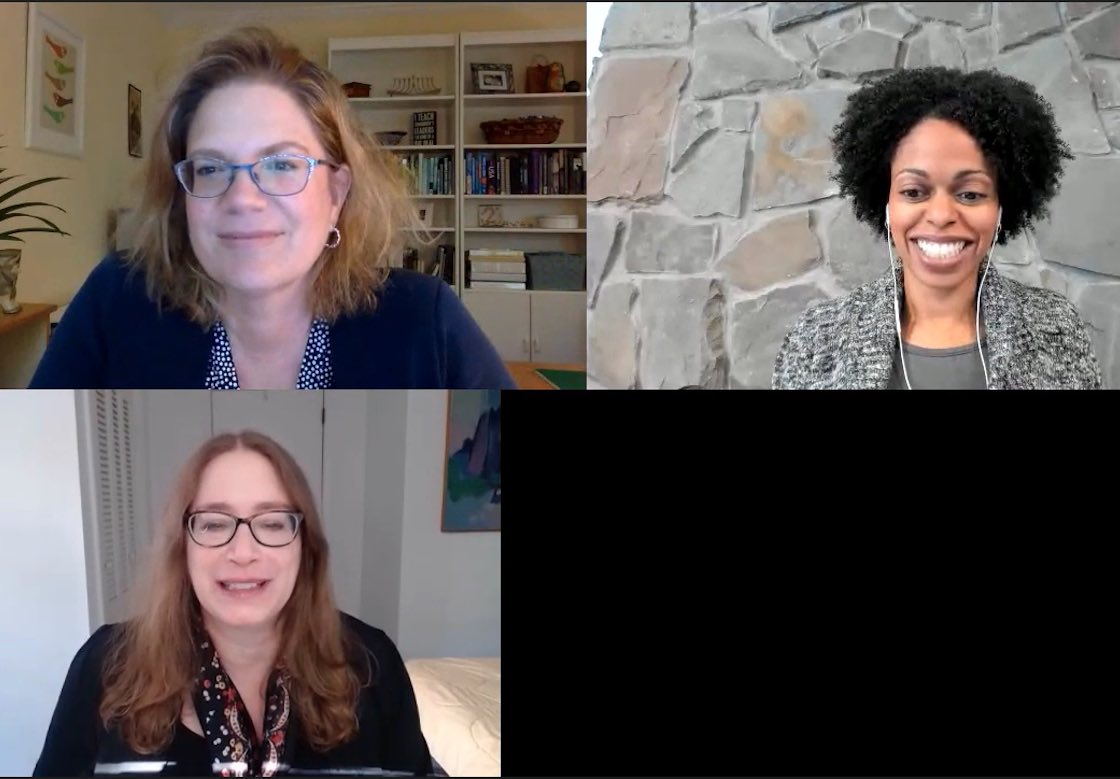ImpactAlpha, Oct. 22 – The different mood at this week’s impact investing gathering reflected not just the contrast between an online event and the annual schmoozefest on San Francisco Bay. On SOCAP’s virtual stage, impact investing leaders grasped to sum up “the state of the field” in a world gone crazy. Talk of market size and growth rates feels inadequate, noted Fran Seagull of the U.S. Impact Investing Alliance, who presented the annual update with Duke University’s Cathy Clark.
The changes wrought by COVID have heightened the urgency of meeting basic needs like food, shelter, healthcare and education in new, more inclusive ways, with alternative proteins, regenerative farming, renewable energy, racial justice and reimagined economic systems. “We’re in an alternative-everything world,” said Mission Investor Exchange’s Monique Aiken, a contributing editor at ImpactAlpha, who joined Seegull and Clark. Some signposts from SOCAP:
Leadership vacuum
We have a crisis of leadership, or more plainly, a lack of moral leadership,” said Ford Foundation’s Darren Walker in a fireside chat with Sir Ronald Cohen. With entrenched corporate interests and short-term thinking blocking change, “We have to think about what are the policies, the incentives that can actually change that reality?” Cohen noted optimistically that Procter & Gamble’s shareholders rebuked management over deforestation, part of an “investor rebellion” that was unthinkable only a short time ago. “I am putting all my faith in the change in values driven initially by young people who believe that our duty is to make money while improving the world,” Cohen said.
Policy agenda
“We need an enabling policy environment” for impact capital to flow, said Seegull, who previewed the policy agenda in development by the U.S. Impact Investing Alliance. Initial recommendations: tax policies to transform community investment, a strengthened Community Reinvestment Act and support for infrastructure and good jobs using the tools of development finance.
Another rule from the Department of Labor, another attack on ESG investing
The Trump administration has had impact investors playing defense on regulatory backsliding in the U.S. “We also want to think proactively,” Seegull said.
Reimagining capitalism
One emerging element of the conversation: Shifting power dynamics. Small funds such as the Boston Ujima Fund are prototyping community-led funds.
How community investment funds are building resiliency to disasters, pandemics and economic shocks
Kataly Foundation’s Regan Pritzker and Beneficial State Bank’s Kat Taylor are moving money and power into communities. Taylor will shift a third of her wealth toward enabling community ownership. “Don’t confuse your fiduciary responsibility with an inability to move resources permanently into the hands of others,” said Pritzker. “If you’re in a philanthropic setting, it’s your duty to stay close to mission, and the tides are shifting.”
Reimagining capitalism, underway before COVID, is squarely on the table, with the Alliance, Omidyar Network, Imperative 21 and the Global Impact Investing Alliance among the groups weighing in.











